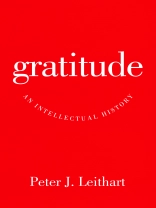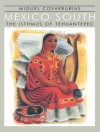Gratitude is often understood as etiquette rather than ethics, an emotion rather than politics. It was not always so. From Seneca to Shakespeare, gratitude was a public virtue. The circle of benefaction and return of service worked to make society strong. But at the beginning of the modern era, European thinkers began to imagine a political economy freed from the burdens of gratitude. Though this rethinking was part of a larger process of secularization, it was also a distorted byproduct of an impulse ultimately rooted in the teachings of Jesus and the apostle Paul. Christians believed that God stood at the center of the circle of gratitude. God was the object of thanksgiving and God gave graciously. Thus, Christians taught that grace cancelled the oppressive debts of a purely political gratitude. Gratitude: An Intellectual History examines changing conceptions of gratitude from Homer to the present. In so doing, Peter J. Leithart highlights the profound cultural impact of early Christian ‘ingratitude, ‘ the release of humankind from the bonds of social and political reciprocity by a benevolent God who gave–and who continues to give–graciously.
Table des matières
Of Circles, Lines, and Soup Tureens
I– Circles
1 Circles of Honor
2 Benefits and Good Offices
3 Ingrates and the Infinite Circle
4 Patron Saints and the Poor
II–Disruptions
5 Monster Ingratitude
6 The Circle and the Line
7 Methodological Ingratitude
III–Reciprocity Rediscovered, Reciprocity Suspected
8 Primitive Circles
9 Denken ist Danken
10 Gifts Without Gratitude
A Theistic Modernity
Notes
Bibliography
Indices
A propos de l’auteur
Peter J. Leithart is President of the Theopolis Institute and an adjunct Senior Fellow of Theology at New St. Andrews College, Moscow, Idaho. He is the author of more than twenty books, including Deep Exegesis: The Mystery of Reading Scripture.












